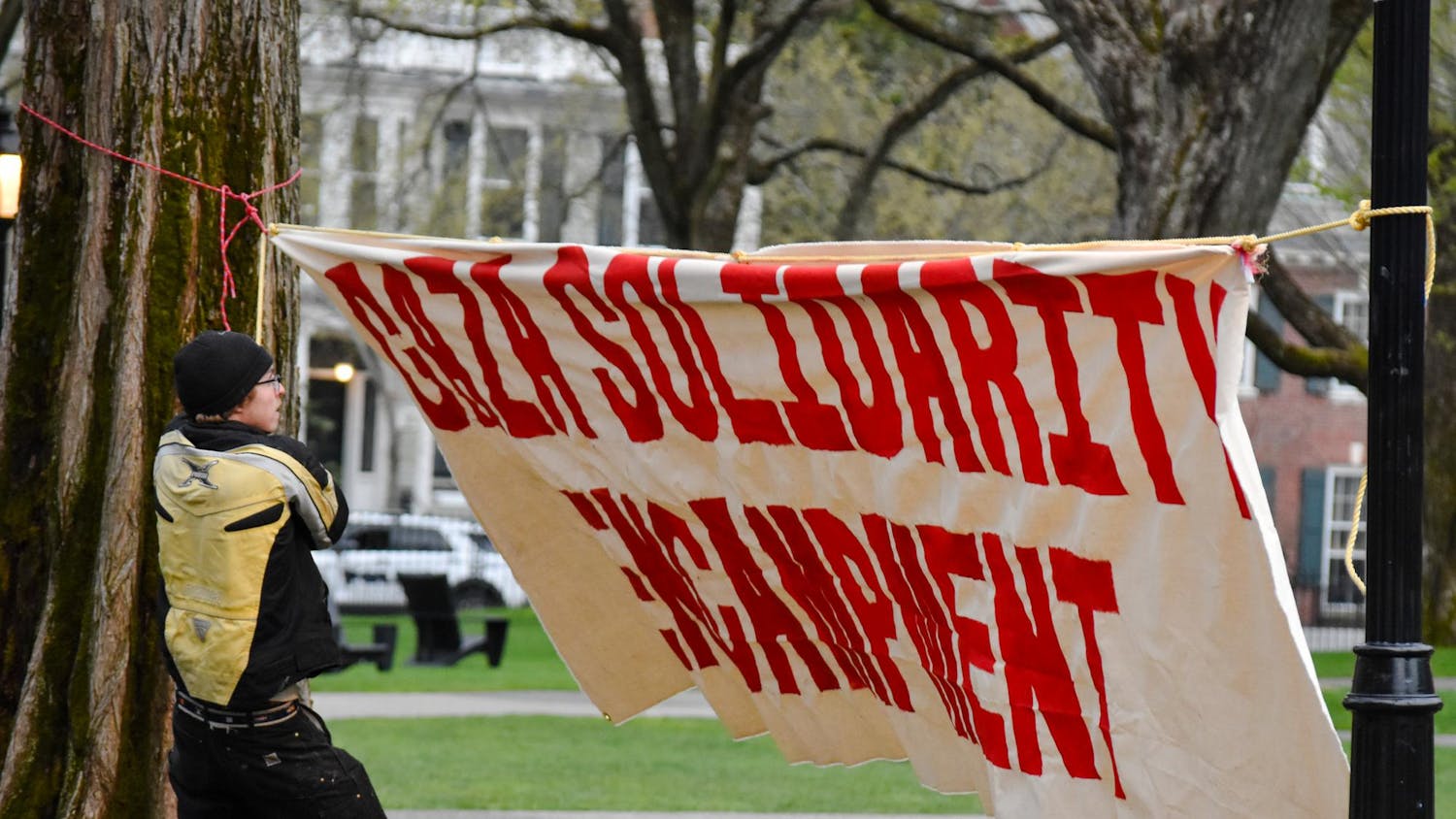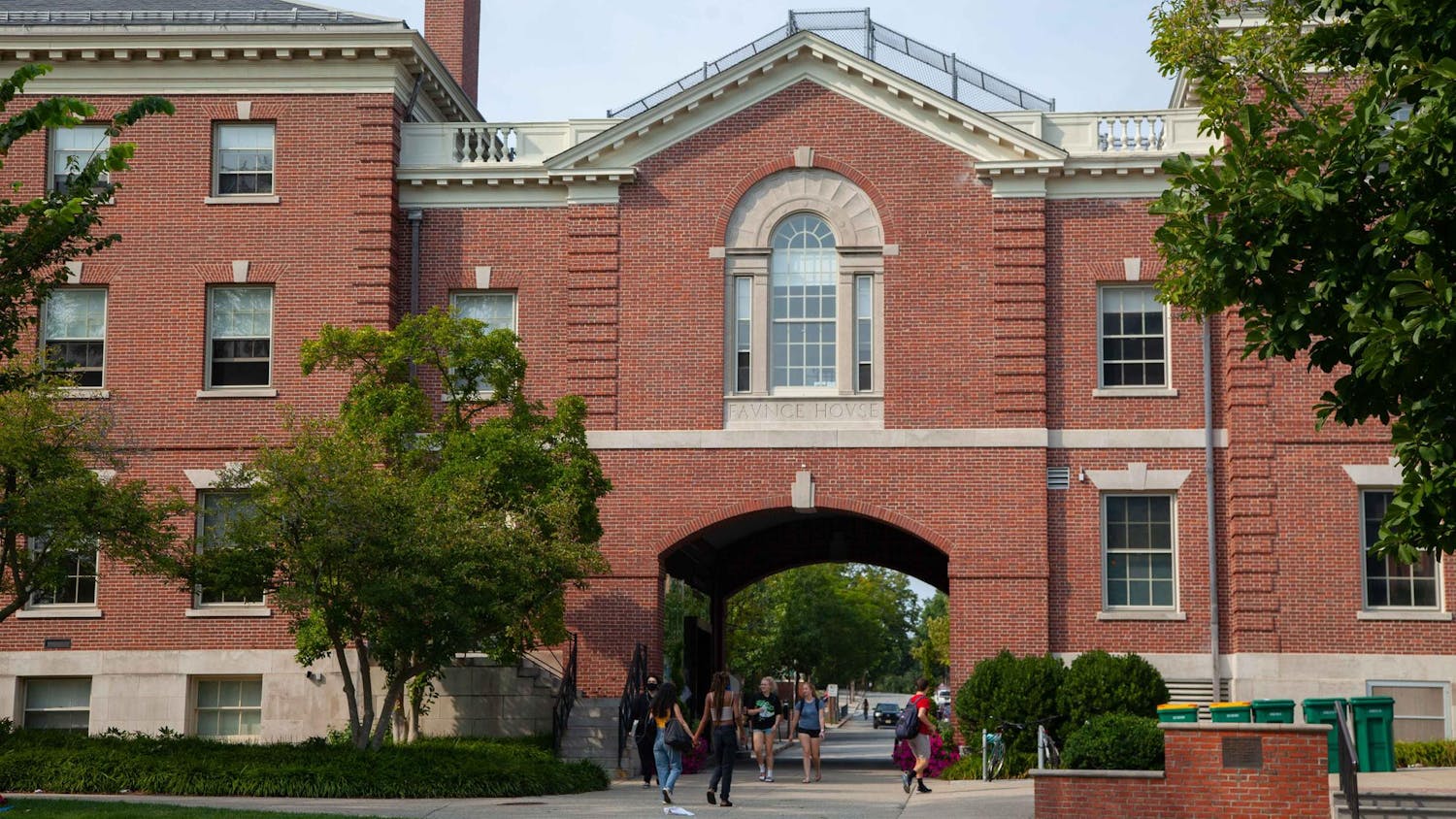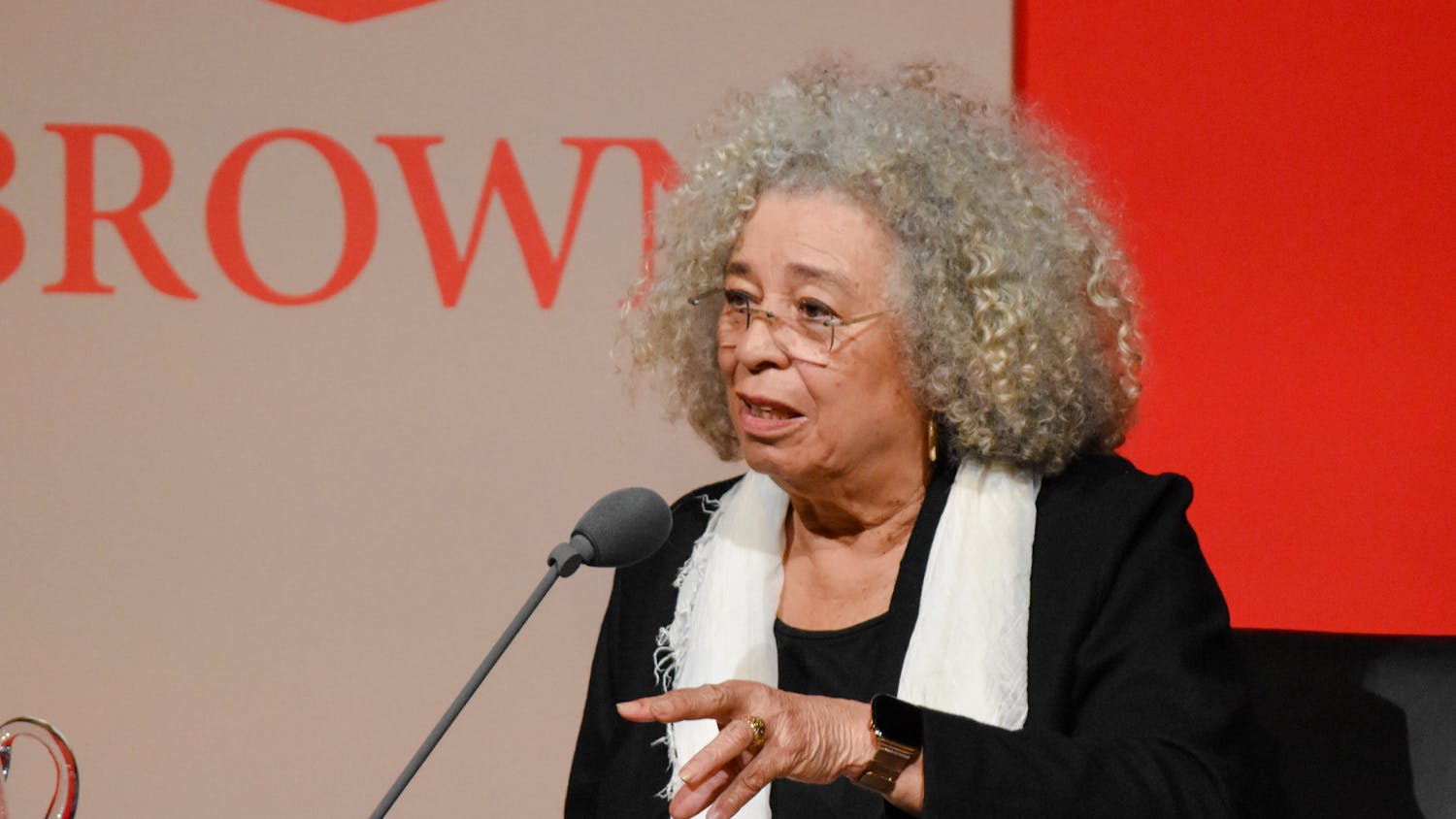When President Ruth Simmons chose to major in French, her former colleagues expressed anger and disbelief that she was not concentrating in something dealing with pressing issues of race. "I don't know why I had the stubbornness to pursue what I did," Simmons told an audience of more than 600 at her final State of Brown address Thursday. Simmons displayed the tenacity that has often surfaced during her 11-year tenure, adopting a different format for her yearly address by taking questions from the audience for most of its duration.
Imparting tales of her personal, professional and academic life, Simmons struck an intimate tone in speaking about the University's relationship with the city, the interaction between disciplines in a university setting and her experience as an administrator and intellectual.
After several questions by Ralanda Nelson '12, president of the Undergraduate Council of Students, and David Rattner '13, vice president of UCS, the discussion was opened up to questions from the audience.
Addressing one student's concern that the University is losing a high-profile advocate for making admission need-blind for all applicants, Simmons said she believes full financial aid availability will be a top priority for the incoming administration.
Students also addressed Providence's financial woes and the future of the relationship between the city and the University. Simmons said she and Providence Mayor Angel Taveras have agreed to keep discussions about the issue confidential, but that she supports the "strong recognition that we will not thrive if Providence does not thrive."
She cautioned against assertions that Brown is not doing anything to help the larger community. When a student expressed concern that the University has drifted from its commitment to serve the community, she asked him for a direct answer about his stance on the University's tax status.
"Criticism is terrific," she said after a question related to concerns that Brown has lost its focus on undergraduate education, adding that there must be a balance between protecting "ideals of liberal learning" and focusing on attracting the highest caliber students interested in research and technology related to contemporary societal needs.
One classics concentrator asked Simmons to address tensions between students who focus on humanities and students in the hard sciences and engineering. Simmons responded with her own defense of her academic focus in French. Students must always be able to defend their choices to pursue particular academic interests, Simmons said.
"Sometimes I listen to 'The Iliad' in the car," she said to laughter from the room. Simmons also said that when people poke fun at her academic focus, she sometimes just starts speaking French, much to their astonishment. "You can mystify with your skills," she said, adding that students must work together to elevate each other, despite academic differences.
The question and answer period revealed a more intimate side to the historically popular president. Simmons was moved to tears when Nelson asked how a president deals with tragedies like the 9/11 terrorist attacks and student deaths. "The hardest thing in the world is to lose a student," she said.
"I am a compulsive doer," Simmons said, when Nelson asked what keeps her up at night. But "there is nothing that keeps me up at night," she responded, adding that she believes worrying about problems is unproductive.
Simmons said when she became president, her family was shocked. "I don't act the same around them," Simmons said, noting that her vocabulary and manner change when she is with her family.
Maintaining family ties without making them feel inferior is the toughest thing for first-generation college students, she said.
"You are no more worthy than any other human life," Simmons said in response to a question about the best advice she had ever received. Simmons spoke about the influence of her mother, who taught her not to think she was superior or inferior to any other person.
Nelson said this departure from the format of past State of Brown addresses was a conscious decision to have an exchange rather than an address. Nelson said Simmons "really lived here, and she was present in the space," adding that she wanted students to see the woman behind the administrator.
The intimacy was present from the start of the afternoon. When asked by Nelson what the proudest moment of her time at Brown has been, Simmons replied, "surviving."




